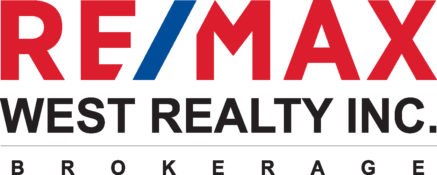What is a Buyer Representation Agreement

Before you put an offer on a property you want to purchase, your real estate agent will ask you to sign a Buyer’s Representation Agreement.
What is a Buyer’s Representation Agreement?
Simply put, this is a legal document that formalizes your working relationship with a real estate agent to buy a new property. It details what services you are entitled to, and what your real estate agent expects from you in return. Signing this agreement is not a legal requirement, and you are not required to buy a home or place an offer during the term of the agreement.
Pros
- Everything in the agreement is negotiable—you can outline your wants and needs for a property
- The real estate agent must act in accordance with the preferences of YOU, including disclosure of all material factors (seller’s financial condition, property’s true worth, commission split, strengths/weaknesses of property, existence of other offers)
- The real estate agent acts as your advocate
- The document clarifies expectations
- The document lays out commissions
- Buyer’s don’t pay commissions, with ONE exception: If the property is for sale by owner, the commission you would pay is laid out in the agreement—it is a percentage of the for sale price
Cons
- Limits you from signing your own purchasing contract
- Limits you to one broker
- Limits your options for that time period, i.e., prevents you from a private sale or going through a new home/condominium development
- Locked into an agreement regardless of personalities
- Indemnification clause: the Agent is not liable for any physical condition of the property not disclosed or verified
Top 5 questions to ask yourself before signing a Buyer’s Representation Agreement
Is the information on the agreement correct?
- Property Type (Commercial/Residential)
- Location (Geographic Region)
- Names of brokerage and buyer(s)
Am I happy with the length of the agreement?
- A BRA will typically last 90 days, and rarely exceeds 6 months. You will need to initial the agreement if it does exceed 6 months.
Do I understand how my agent’s commission will be paid?
- Commission is typically 2.5% for the buyer’s broker.
- The seller pays the commission, unless it is a “for sale by owner” property, in which case it would come out of the sold price
- If, during the house hunt, the listing states a lesser commission than your agreement, you are responsible for paying the difference
Do I understand the terms of the holdover period?
- This details the period after the agreement expires that you would still need to pay commission to the agent if you go to the seller directly
This typically lasts 30-90 days after the agreement’s expiration.
Is my agent only representing me?
- Multiple representation occurs when the agent OR broker represents both the buyer and the seller in a transaction. With multiple representation, no information will be confidential.
- In Ontario, a multiple representation agent or broker is required to disclose information to both the buyer and seller, and receive written consent from all parties (a standard OREA Confirmation of Co-Operation and Representation form)
See Also : Closing Cost
See Also : Property Taxes
See Also : 6 things every First time Homebuyer should know
See Also : House Deposit vs Down Payment, what’s the difference
What is a Listing / Seller Agreement ?

When you are selling your home, your broker or salesperson will ask you to sign a listing agreement.
The listing agreement is the contract between you and the brokerage that permits them to market and sell your home. These agreements should be in writing in order to protect the interest of all parties.
Contents of Agreements
To protect the interests of all involved, agreements should be in writing. In fact, the Code of Ethics under the Real Estate and Business Brokers Act, 2002, contains a number of provisions specifically related to agreements.
An agreement must indicate the date it will take effect and the date it will expire. The agreement must describe the services that will be provided to you by the brokerage and provide information related to the amount of commission or other fees payable to the brokerage as well as how these amounts will be paid to the brokerage. Consumers should be aware that commissions and other remuneration are not set or fixed by RECO, government authorities, real estate associations or real estate boards.
Before You Sign
- Your broker or salesperson wants to provide you with the best service he or she can. To make the most of this relationship, it’s important to clarify your needs and expectations. To avoid misunderstandings later on, it’s important not to make any assumptions.
- Discuss all of the services that will be provided. Take the time to clarify the fees and costs related to these services and make sure the written agreement is clear.
- You should also take time to ask what the broker or salesperson expects from you and what your obligations are.
- Remember that you are entering into a legally binding agreement with the brokerage authorizing the brokerage and the salesperson to represent your interests in the sale of your home. You and the brokerage will be bound by the agreement.
Once all parties have signed the agreement, the brokerage will provide you with a copy.
If you choose not to sign an agreement, the brokerage is still responsible for outlining the services that will be provided to you by the brokerage.
Don’t sign if you don’t understand it
Never sign an agreement unless you are sure you know how long it will be in effect, what geographic area it covers and what the different clauses mean. It’s one of the most important steps you can take to protect yourself.
Take the time to read it thoroughly. Ask questions. Your broker or salesperson can’t provide legal advice, but they are familiar with these agreements and should be able to answer your questions and explain what the clauses mean and what effect they will have.
Feel free to seek legal advice at any time.
Holdover clause
RECO often receives calls from consumers about holdover clauses in agreements and what they mean. This is a legal question and you should seek legal advice if you have concerns. Listing representation agreements typically include a “holdover clause”. Generally, it means that within “X” days after the agreement expires (the “holdover period”) if you sell to a buyer that was introduced to you during the term of the agreement, you would be responsible for paying commission to your brokerage. The length of the holdover period is negotiable.
There are two parts to a seller representation (listing) agreement:
- OREA Listing Agreement Authority to Offer for Sale
- MLS® Data Information – Freehold – Sale
The listing agreement performs several functions:
- Establishes the seller/brokerage agency (legal) relationship
Outlines:
- Services being performed.
- Obligations of the parties.
- Defined limitations on the agent’s authority.
- Time limits concerning such authority.
- Provides property specifics for paper and electronic distribution.
- Furnishes information for negotiations and drafting offers.
- When one enters a seller representation agreement, the authority can be exclusive or an MLS® listing.
An Exclusive listing:
- Involves giving the brokerage the sole right to sell the described property per the terms of the representation agreement.
- If the property is sold, the brokerage receives a commission and has the option to co-operate with other brokerages.
- Note. The property does not get listed on the MLS®
An MLS® listing:
The listing is still an exclusive listing one.
- Co-operation with other brokerages is specifically authorized by the seller
- Note. The property is listed on the MLS®. Listings contained on the MLS® database are then available to authorized users (i.e., brokerages, brokers and salespersons members of that board) to assist them in representing their clients.
Key Elements of the Seller Representation Agreement
Authority
- Granted in brokerage’s name.
Dates
- Start and end dates and times of the contract.
- Seller initials if contract spans more than 6 months.
Listing Price
- The responsibility to set a listing price rests with the seller, not the salesperson.
- Includes any other price or terms that the seller may accept.
- The seller is entitled to the salesperson’s professional opinion regarding property value and listing price. A comparative market analysis (CMA) is usually prepared for that purpose.
Seller Representation/ Warranty
- This clause us bolded for emphasis, as this warranty relates to the property not being currently listed with any other brokerage.
Commission
- Seller agrees to pay a total commission that can be a % rate, an agreed amount, or a combination of both, plus applicable taxes.
- Deposit first applied to reduce the commission payable.
- Seller shall pay, on demand, any deficiency in commission and taxes owing on such commission.
- Seller shall pay commission, even if sale does not complete due to Seller’s default or neglect.
Holdover
- Commission payment terms apply after expiry of the representation agreement for the duration of the holdover period (60-90 days), unless the Seller enters into a new representation agreement with another brokerage, commission amount would be reduced by portion payable to the new buyer brokerage.
Representation
- Sets the commission amount that the Seller authorizes the Listing Brokerage to pay to a co-operate with any other registered real estate brokerage.
- Various disclosure and related procedures concerning representation, multiple representation and customer service.
Referral of Enquiries
- Seller to advise brokerage immediately of all enquiries and any offers to purchase from any source whatsoever during the term of the listing.
- Any enquiry during the listing period resulting in an accepted offer to purchase during the listing or the holdover period will result in the Seller paying the brokerage the commission within 5 days.
Marketing
- Brokerage is authorized to market the property and permit prospective buyers to fully inspect the property.
- Can place “For Sale” and “Sold” signs on the property. (with permission)
- Can identify the property in advertising (with permission)
- Sole and exclusive right to make all advertising decisions.
- Indemnification for acts or omissions in advertising other than gross negligence/willful act
Warranty
- Seller has all the authority necessary to sign the agreement.
- Seller has disclosed outside / third party interests concerning the property (e.g., first right of refusal).
Indemnification and Insurance
- The Seller will not hold the Listing Brokerage liable for loss or damage to the property or contents unless it was caused by the Listing Brokerage’s gross negligence or a willful act.
- The Seller will save harmless the brokerage for any “loss” caused by the Seller.
- Further the Seller confirms that the Seller has insurance to cover any injury or property damage that may occur.
Family Law Act
- Seller warrants that spouse has signed agreement if necessary
Verification of Information
- Brokerage is authorized to and Seller agrees to provide further authorizations as may be required to obtain information from any regulatory authority, governments, mortgagees, or others, and said authorities are authorized to release any and all information to the brokerage.
Use and Distribution of Information
- Permission to use personal and property related information for marketing, advertising, and listing on the MLS® database considering privacy laws.








